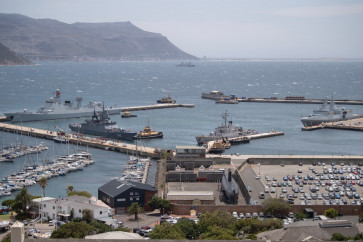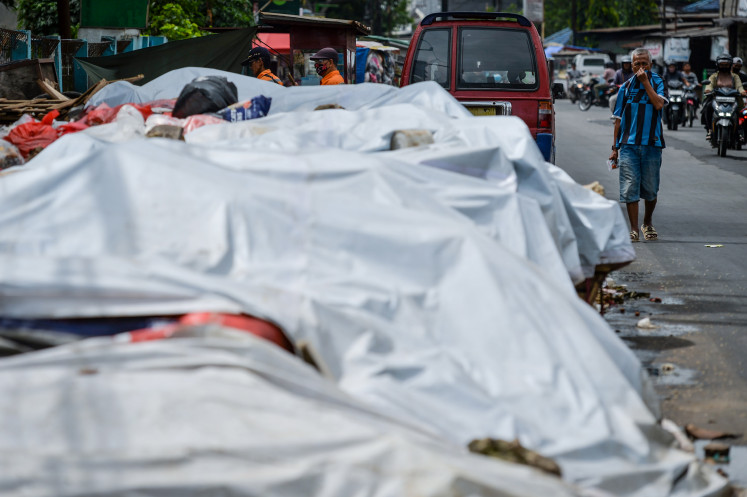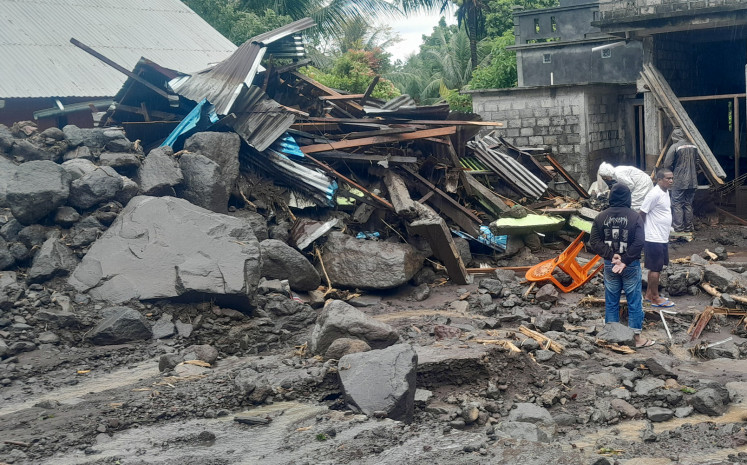Popular Reads
Top Results
Can't find what you're looking for?
View all search resultsPopular Reads
Top Results
Can't find what you're looking for?
View all search resultsIncreasing income doesn’t guarantee better service
Deemed a breakthrough approach to public transportation in Jakarta, the Transjakarta Bus Rapid Transit system has changed Jakartans’ travel behavior in the city
Change text size
Gift Premium Articles
to Anyone
D
eemed a breakthrough approach to public transportation in Jakarta, the Transjakarta Bus Rapid Transit system has changed Jakartans’ travel behavior in the city.
The steady increase in passengers has come in line with the increasing number of corridors. This has significantly boosted revenue. Unfortunately, increased revenue has not been followed by improvements in service.
In one day the new transportation system, popularly known as the busway, is capable of generating at least Rp 1 billion (US$114,000) from a total of around 250,000 passengers. In the first semester of this year, ticket sales generated total revenue of Rp 183 billion.
“We are aiming to reach Rp 345 billion and we believe we can surpass that target,” Transjakarta Bus Rapid Transit management body (BLU) chief Muhammad Akbar told The Jakarta Post.
Revenue from ticket sales amounted to Rp 289 billion in 2010, up from Rp 277 billion in 2009.
Despite increasing revenue, Akbar said the sum was far from sufficient for covering total operational costs. A substantial subsidy from the Jakarta administration was therefore still required.
Akbar said that it had been estimated that total spending would reach Rp 678 billion ($76.61 million) this year. To be able cover this amount, Transjakarta still required a subsidy worth around Rp 333 billion.
“Seventy percent of the total operational cost is spent to pay the salaries of operators [drivers] and bus maintenance [mechanics] and fuel,” he said.
As of June this year, BLU had paid Rp 233 billion to eight operators. It paid Rp 445 billion for the operators last year, which was 33 percent higher than in 2009.
“We are not talking about generating profit here. As long as the tariff is still below cost, we still need the subsidy,” Akbar said.
Based on the 2009 calculation, the bus fare should be set at Rp 5,700, but the fare presently borne by passengers is only Rp 3,500, he said.
“We know that there are many
complaints from the public about our service. But we are on the right track and we’re taking the complaints as [challenges] in order to become better,” Akbar said.
The second greatest operational cost is allocated to paying the salaries [ticket sales, janitors], followed by the maintenance budget for upkeep of infrastructure, such as busway corridors.
The BLU maintenance budget for this year is estimated to reach Rp 8 billion and will be used to, among others, repaint the 200 shelters in seven corridors and renovate the shelters’ structures.
“We decided to scrap the repair of some facilities, such as the automatic doors and shift focus to other things that can improve customer satisfaction, such as fixing fans and adding more,” he said, adding that the buses would be painted some time this month.
BLU maintenance activities are usually conducted once a year, but starting next year, a new repair system will be introduced, in which BLU will conduct a more responsive system that would rely on every report submitted by the BLU monitoring team and the public.
In addition to annual maintenance of shelters, BLU also monitors biweekly bus maintenance
conducted by the operators, including oil changes and checking air conditioners.
“We also have teams that examine the condition of the buses everyday and forbid those that do not meet operational standards from operating,” Akbar said.
He said the buses must undergo a certification process with the Transportation Agency every six months and gas-fueled buses must have their gas tanks inspected by the City Manpower Agency every three years.
“I don’t know why this is checked by the City Manpower Agency, but I guess it is all related to safety procedures,” he said.
A Transjakarta bus gas tank exploded two days ago while being refueled at the Pinang Ranti gas station in East Jakarta. Akbar said that there appeared to be nothing wrong with the tank as its certification was valid until 2013. The police are still investigating the cause of the incident.
Institute of Transportation Studies (Instran) chairman Darmaningtyas called on BLU to conduct more intensive and thorough supervision of the buses to avoid further incidents and to provide improved passenger service.
In addition, he said, BLU had every right to remind the operators to always improve service quality, as the BLU was in effect also purchasing their services.
“The operators’ mind sets have not changed much. They used to be the operators of regular buses, depending on the payment from the drivers, which resulted in a poor quality of service. They can’t do that anymore,” Darmaningtyas said.










